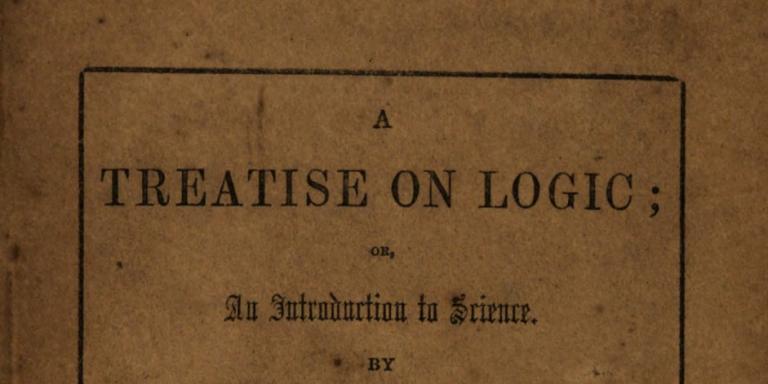(A general supporting note for discussions to come.)
Thinking is hard.
I do not mean that sarcastically. I mean that critical thinking takes discipline and time and intellectual labor, and nobody — not even your humble author, I must confess — does it all the time.
It is much easier to follow the pack. We are pack animals, and have a natural tendency to go along with those with whom we identify. Whether our pack is “white men” or “women of color” or “progressives” or “conservatives” or “evangelicals” or “the LGBT community”, it is much easier to follow and echo the rest of the pack than to think.
And when the world situation becomes more complicated, and we are inundated with information that is not knowledge and thinking becomes harder, the temptation of identarianism becomes correspondingly greater.
But when it comes to politics, to advocating the use of force against our fellow humans — for force is the underlying nature of the state and of politics — we ought to do our very best to think. It seems to me a moral imperative.
The fundamental unit of reason is the proposition: a conjectural statement about the world to which we can assign a “true” or “false” value. A proposition may be an immediate statement about the observable physical world (“Mars is about half the diameter of Earth”) or an abstract statement arrived at though a chain of reasoning (“The cardinality of the rational numbers is the same as that of the integers”). And it may be true or false — “Tom Swiss is over seven feet tall” is a proposition, though it is false.
What is special about propositions is that they are true or false no matter who utters them. We can use the methods of reason to investigate the truth or falsity of propositions regardless of our social status, regardless of race or class or gender or ethnicity or what pack you belong to. It is not a coincidence that the same Athenian culture that invented democracy also laid the foundations of reason and science.

But the degradation of contemporary political discourse is demonstrated by how often someone asserting a proposition is met not with a debate about the proposition, but with accusations of the form “that’s just what members of so-and-so group say!”
“That’s what you libtards always say!”
“That’s the old conservative line!”
“You only say that because of white privilege!”
“That just shows your cultural Marxism!”
Never mind the proposition itself; what’s important is which identity group it’s associated with. Group identity (including the identity of “ally” to a historically marginalized group) takes primacy.
As we noted above, it’s understandable: following the pack is the path of least resistance.
But this framing negates the possibility of persuading anyone to support or oppose propositions about the world via reasoned dialog.
Since people don’t (generally) change identity groups, when they are primary reasoned persuasion has no role. Rhetoric — the use of both logos and lexis to persuade public opinion — doesn’t matter.
In an identarian world, convincing people to your point of view is right out. Racists can’t be converted, only “deplatformed” and assaulted. Critics of Israel’s human rights policies can’t be argued with, they have to be coerced into taking loyalty oaths to silence them.
Under identarian assumptions, politics is not about persuading people to support or oppose various policies, but about gaining power for your group and its allies.
But as the mechanisms of democracy — weak though they always were in the American republic — have become corroded by plutocracy, we have reached a point where ordinary people have no direct access to significant political power.
The only way to get power is to make someone who has it feel emotionally sympathetic for you — take pity on you. This may be one factor in the rise of the “victimhood culture”, as outlined by sociologists Bradley Campbell and Jason Manning.
When it works, the ability to attract support by drawing the attention of the powerful to the ways one has been marginalized or harmed becomes it itself kind of privilege, and incentivizes more such behavior. And so our society increasingly fragments into identity groups, each one claiming victimhood at the hands of a constellation of others, to attract sympathy.
Maybe, just maybe, if we recognize this, we can do the work. We can deliberate propositions about the world, rather than seeing every interaction as an opportunity to claim victim status for our socially-constructed identity group, be it the so-called “white working class” or so-called “people of color”.
That’s not to say members of these groups do not have legitimate grievances about their treatment! But if we clearly articulate our propositions, we may find surprising common ground. Imagine Mormon polygamists and same-sex couples and polyamorous Pagans all saying “Our relationship is non-traditional, but the ideal of equal protection under the law implies that the state should recognize it anyway.” Or Catholic nuns, Orthodox Jewish men, and Muslim women working together to advance accommodations for religious headgear.
Who knows what sort of understanding and cooperation such crossing of identarian boundaries might generate? Back in the 1960s, the Black Panthers and the Confederate-flag waving “hillbillies” of the Young Patriots Organization came together under the proposition that capitalism was “grinding up the flesh and spitting out the blood of the poor and oppressed people”, forming the original “Rainbow Coalition” long before (and much more radical than) Jeese Jackson.
Maybe we could try to use rhetoric to persuade, rather than seeking to deplatform those who disgree. (Let me remind you that deplatforming helped give Trump the election in 2016, as I warned at the time.)
Try it next time you’re arguing on Facebook: see if you can formulate the point of disagreement as a clear, true-or-false proposition, and keep the conversation on that rather than on the properties of your or your interlocutor’s identity groups or allyship.
Maybe if we could Make Reason Great Again, we could advance the proposition that “Political power in the United States should be broadly distributed”, rather than trying to get the oligarchy on the side of “our” identity group.

















